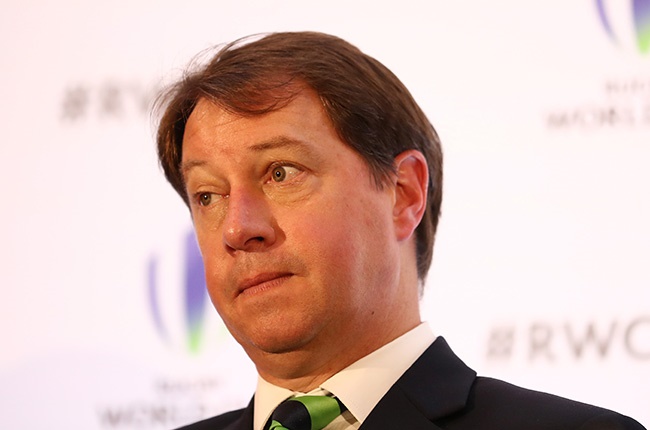
- SA Rugby is against the loss of exclusivity with regards to broadcasting rights.
- SA Rugby CEO Jurie Roux says he hasn’t seen workable examples of non-exclusivity.
- The drying up of funds that could come with new regulations could affect transformation plans.
SA Rugby's chief executive officer Jurie Roux says there are few to no examples of non-exclusivity being at the heart of growing the game commercially around the world.
The removal of exclusivity of content was also one of the Independent Communications Authority of South Africa's (Icasa) proposed remedies, one that was vehemently fought by SA Rugby and the Premier Soccer League, with both organisations stating on Thursday that exclusivity was at the heart of their financial operations.
The sporting entities and Icasa were engaged in a public hearing with regards to the draft findings on the Subscription Television Broadcasting Services Inquiry.
Roux said the unbundling of rights, another of Icasa's proposed remedies, wasn't a major issue, but it could come at the expense of exclusivity.
"We're not opposed to the unbundling of rights as such, but we are opposed to the demerits of exclusivity and the value one can get from the broadcaster. That's the memo we have with the current unbundling of rights. We believe in exclusivity and its value and we understand that in the rugby environment," Roux said.
"I've yet to see an example in the world where non-exclusivity renders the necessary remedies to sustain, not only SA Rugby, but its affiliates. Until we have those examples and elements to implement that, we can't move from that. It'll be to our own detriment and that of the game."
Roux hoped that the regulations would not get in the way of their transformation plans as the funds required for transforming the game are derived from their broadcast rights funds.
However, Roux said it wasn't in their ambit to enforce regulations with broadcasters, even though they were in constant contact with them.
"In order for us to deliver on all of our transformation plans that we have in a very detailed document, we need the most amount of money available that we can get out of our broadcasting revenue and we sell that on that basis with the necessary knowledge that there is a regulation with regards to sports listing that is available and that regulation is enforceable and it should be enforced," Roux said.
"We are always in constant contact with all our broadcasters to ensure that they abide by regulations. Enforcing isn't our responsibility, and it shouldn't be. It's our job to sell our broadcasting rights and then it's our job to develop and transform the game of rugby, from where let people do their jobs around that."
Roux though said SA Rugby is not opposed to regulations, but they should not come at the expense of the death of the game because of the financial pipeline being choked.
"We want to reiterate the fact that we're not opposed to regulations. We understand the position of regulation in society and constitution. All that we ask for is that the regulations aren't done in a way that stop the sport we love," Roux concluded.
